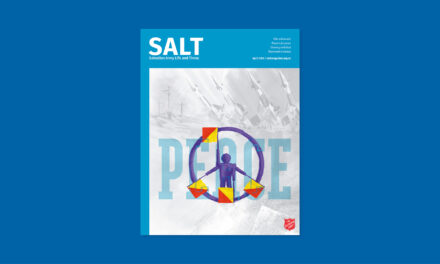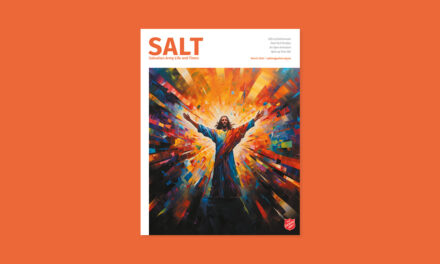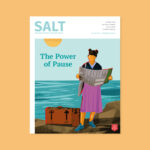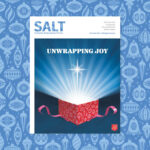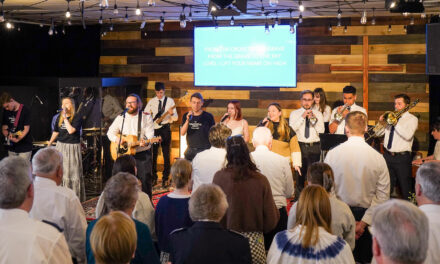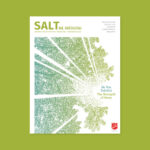
A New Year Lament- From Pain to Promise

Jules Badger reflects that for some of us, the new year can be a strange and unsettling time. The pages of our story up to this point are full of content—we know where we’ve been. And while some delight in a blank page and are excited about writing the next chapter, others of us may feel daunted by the prospect.
The way ahead is unknown and perhaps even a little frightening. That empty page looms large as it awaits the first stroke of the pen, but rather than excitement and opportunity you just feel intimidation and lack.
It’s helpful to know that allowing time to listen to the lessons of the season we’ve just been through is an important spiritual practice, rather than immediately focusing on what’s next. Sometimes the year we have just been through has been tough. Difficult. Heartbreaking. Traumatic even. And while the world wants us to move on quickly and not look back—to make New Year’s resolutions for a better life this year, holding space for reflection and lament can be more life-giving than you might first think.
Emotions and expectations
There are also times when the new year heralds change that is welcome and exciting—it’s anticipated because you’ve planned for it. But even when we step into the unknown on purpose, we cannot always be sure that our feelings and emotions will line up with our hopes and expectations. This can be discombobulating:
Perhaps your pre-schooler is starting school, which is exciting! But it is also the end of a special season of life, and loss lingers longer than anticipated.
Maybe your corps (church) has new leaders taking up the reins, which is exciting! But there is also a sense of loss and confusion in the mix, as you farewell and grieve for leaders you have loved.
Perhaps your youngest child is leaving home, which is exciting! But what seems like a significant step for them feels like a severing for you…
Perhaps you are retiring and preparing to see more of your family, which is exciting! But downsizing the family home feels like the walls are closing in…
Other times you find yourself well beyond discombobulated, and your faith feels more like sinking sand:
Perhaps you’re starting the new year without a beloved spouse for the first time and the year ahead holds many ‘firsts’, like birthdays and anniversaries you will have to face without them…
Perhaps you are experiencing infertility, and you’re not sure you want to ride the roller coaster of hope again in case there is more loss…
Maybe your physical illness has become chronic, and life looks nothing like how you imagined it would at this stage…
Where is God when the new year does not look bright but bleak? Where is God when you feel stuck and weighed down by present pain? Where is God when your faith is not just shaken but threatening to shatter?
Learning to lament
In his 2019 book Dark Clouds, Deep Lament, Mark Vroegop describes lament as ‘a loud cry, a howl, or a passionate expression of grief.’ Scripture contains an abundance of lament, but historically and especially in the last century, the Church has not been good at lamenting.
‘In the Bible lament is more than sorrow or talking about sadness. It is more than walking through the stages of grief. Lament is a prayer in pain that leads to trust,’ says Mark. ‘You might think lament is the opposite of praise. It isn’t. Instead, lament is a path to praise as we are led through our brokenness and disappointment. The space between brokenness and God’s mercy is where this song is sung. Think of lament as the transition between pain and promise. It is the path from heartbreak to hope.’
One-third of the psalms are laments, and they follow a pattern of four key elements:
- an address to God
- a complaint
- a request
- an expression of trust and/or praise.
Mark summarises them as turn, complain, ask and trust. ‘Lament invites us to turn our gaze from the rubble of life to the Redeemer of every hurt. It calls us to turn toward promise while still in pain,’ explains Mark.
Shifting focus
In the modern Church, we’ve almost been conditioned to rush past the pain and anguish we read at the beginning of so many psalms, but that’s a temptation that robs us of deep work, because psalms of lament give us permission to be in pain. Mark says, ‘Lament is a prayer that leads us through personal sorrow and difficult questions into truth that anchors our soul.’
Psalms of lament call us to remember what God has done for us in the past—insistent that we look back, reflect, and meditate. When we do this, and it takes time, the truth about God’s character is revealed, and our focus shifts. It’s beautiful and mysterious—it’s faith! It’s the Holy Spirit at work in the present moment of our pain, drawing us deeper into God’s mercy and grace.
So, it’s a new year once again, and that blank page is still crying out for content! Maybe learning the spiritual practice of lament could be a revolutionary New Year’s resolution that restores, renews and revitalises your faith in God. Why not pause before you rush headlong into 2024, and give it a try?

